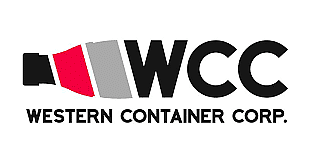What Determines How Corrosive Your Soil Is?
Most of what we build is built on or within the ground beneath our feet. Good soil keeps structures like foundations and pipework grounded, but bad soil can be their downfall. Some soils are highly corrosive and can gradually eat away at structures, weakening their integrity and leading to problems down the road.
Wondering what determines how corrosive your soil is? Here are the factors corrosion experts look for when testing for soil corrosivity.
Aeration
Aeration refers to the amount of air trapped inside the soil particles. Soils that have high porosity (better aeration) are less corrosive than soils with low porosity. That’s because well-aerated soils have low moisture retention rates and high evaporation rates. Less moisture in the soil means fewer electrolytes, and consequently, a lower risk of corrosion.
Soil Acidity
You likely recall learning the basics of pH during your school days. As a refresher, pH is a scale used to specify the acidity of something. The pH scale goes from 0 to 14, with lower numbers being acidic and higher numbers being basic. A pH of 7 is neutral.
A neutral pH is ideal for soil, but any soil that’s basic will have low rates of corrosion. However, you never want to drop below a pH of 5. Acidic soils are heavily corrosive and can wreak havoc on metals.
Salt Content
Another thing that determines how corrosive your soil is the amount of salt in the water it retains. Water containing dissolved salts like chloride and sulfate have highly conductive and reactive electrolytes. When these electrolytes encounter oxygen and a metal surface, corrosion occurs.
Temperature
As the temperature rises, soil resistivity decreases, and soil becomes more corrosive. So, if you’re building in arid, sweltering hot environments, keep a close eye out for corrosion, but if you’re erecting a structure in the cold Alaskan wilderness, you don’t have to worry as much.
Soil Resistivity
Soil resistivity refers to how well the soil resists electrical flow. Soil resistivity and moisture content are inextricably linked—soils with high moisture contents generally have low resistivity, while soils with low moisture contents have high resistivity. To keep the likelihood of corrosion low, it’s crucial to choose soils with low water retention rates.
Before you build anything, testing your site’s soil corrosivity is a necessity. Dreiym Engineering can help you keep corrosion at bay by performing soil corrosivity testing on the soil at your site. Contact us today to speak to an expert and schedule a consultation service.












































